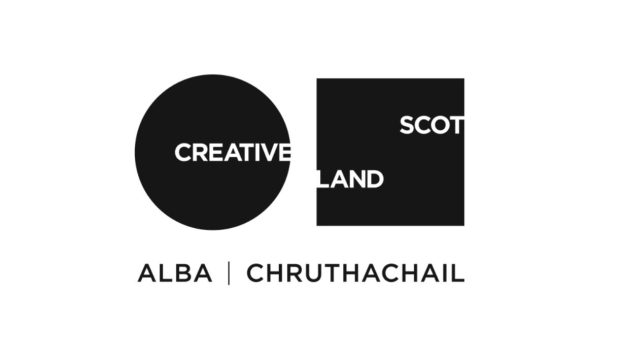
Creative Scotland are reviewing their decision to award public money to an explicit film project that will pay people to take part in extreme sex scenes.
As community arts and theatre groups across Scotland struggle, Creative Scotland – the public body that supports the arts, screen and creative industries – awarded £85,000 of National Lottery funding to the makers of REIN, a 45-minute art installation in which the cast will participate in a range of sex acts with one another.
Last night, women’s groups expressed concern about the project, with one describing it as “nothing more than hardcore porn”.
The funding has been agreed for director Leonie Rae Gasson, who also works with a number of youth theatres, to make REIN, which she describes as a “moving image installation”.
A recruitment advert on Gasson’s website says people who take part in the film are to be paid almost £300 a day, but they must take part in explicit “live sex”, rather than simulated sex, alongside extreme sexual practices that are too offensive to describe in a family newspaper.
It says the actors must be over 18, those with previous experience of sex work “particularly in porn contexts” are welcome, as are disabled people.
On Sunday, Creative Scotland said they would be ‘reviewing’ the funding.
“We support freedom of expression and artists being able to push the boundaries of radical performance,” they said.
“However, the project, Rein, is considerably more explicit in its execution than was indicated in the application received to our Open Fund. As such, we are reviewing this award and will be discussing next steps with the applicant and with the other partners in the project.”
In her description of the project, Gasson notes: “We are working with Intimacy Co-ordinators with experience across film and sex work.
“Sessions with a somatic bodyworker or psychotherapist are also available for any member of the cast as part of the process.”
A somatic therapist helps people release damaging, pent-up emotions.
Trailed storylines include “Daddies lurking in the woods”, as well as “muddy wrestling” and a cave sex party.
The website said: “Some roles will involve just snogging, others will involve vanilla sex and other more hardcore acts.”
It added: “If you are selected to be in the cast, our intimacy co-ordinators will support you to more clearly identify your detailed needs and boundaries with the sexual aspect of the work.
“This is a pro sex and pro sex worker project so, even if your character does not engage in sex, you will be around those that do.”
The only restriction appears to be that participants are forbidden from bringing nuts on set, with a warning stating: “Please don’t bring nuts into the space.”
Kate Barker of the LGB Alliance said: “We see this whole project as offensive. It is harmful and abusive towards women. It’s nothing more than porn masquerading as art and culture.
“We all know that women working in the porn industry are vulnerable and exploited, so this project being given £85,000 public money to continue doing that is unacceptable and appalling.”
Jenny Willmott, of Scottish Lesbians, said: “Participating in sex acts that need aftercare does not appear to be either safe, healthy or ‘good sex’, and that has been an immediate red flag for me.
“Some of the sex-acts performers will be asked to take part in hardcore porn and, because of that, this whole project feels like it has male fingerprints all over it, particularly the attempts to normalise really violent, disturbing sex.”
Trina Budge, from campaign group For Women Scotland, said: “People will be horrified that a project that is so offensive and dehumanises women would receive £85,000 of public money.
“The act of prostitution is recognised as a crime of violence towards women, and this project is paying actors to have sex, as well as promoting unhealthy and dangerous relationships.”
Julie McGee from Glasgow Tactical Feminists called for the project to be halted and said: “There are so many deeply disturbing aspects, this project should not go ahead.”
‘Questions need to be asked’
Meanwhile, the allocation of the funds also drew criticism from other arts groups.
Last month it was announced The Fringe Society was one of 66 eligible applicants that failed to make the second round of an “extremely competitive” bidding process for Creative Scotland’s new multi-year funding programme.
A source with a community arts organisation currently applying for the same funding pot said it had been the “most complicated, difficult and detailed process” they had ever gone through, and reacted with disbelief that £85,000 had been awarded to a such a niche project.
They added: “Even if it is from a different funding pot, how did this project get so much money when other community groups have been rejected? If they want to make that kind of film, fine, but why not pay for it themselves?
“Questions need to be asked about how funding is awarded.”
Scottish Conservative deputy leader Meghan Gallacher said: “Given the concerns raised here, Scottish Government ministers must make clear that robust processes were followed before handing over taxpayers’ money for this show.”
The National Lottery said: “We play no role in the allocation of funding. This is the specific responsibility of 12 distribution bodies, each with specialist knowledge of their sectors.”
Gasson was approached for a comment.

Enjoy the convenience of having The Sunday Post delivered as a digital ePaper straight to your smartphone, tablet or computer.
Subscribe for only £5.49 a month and enjoy all the benefits of the printed paper as a digital replica.
Subscribe